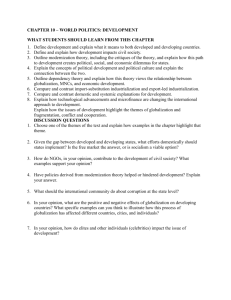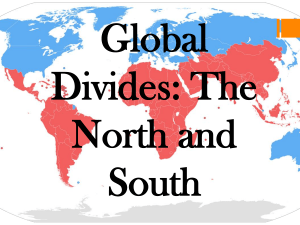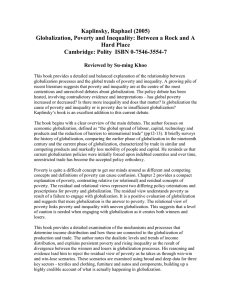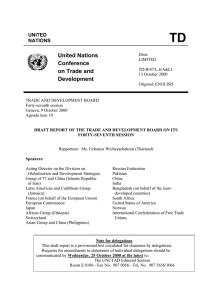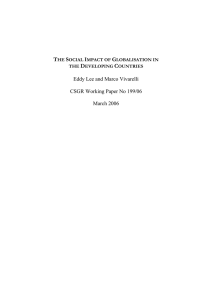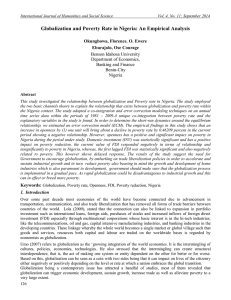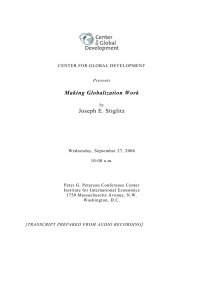ABDEL SALAM MAJALI Science and Technology in a Globalised World:
advertisement
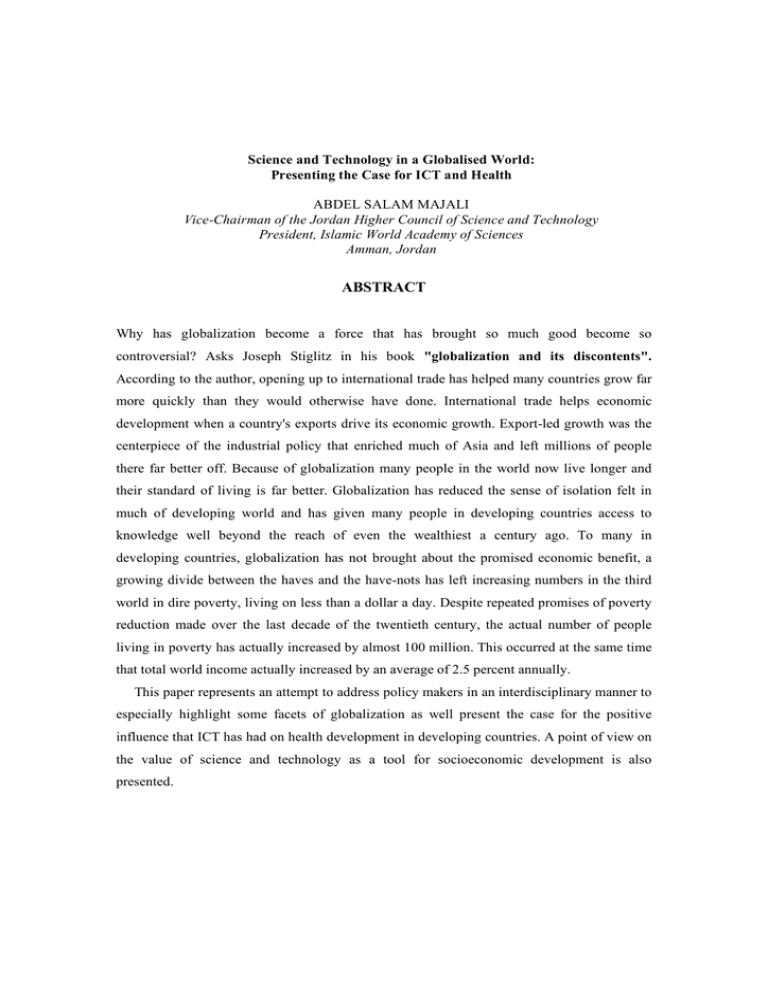
Science and Technology in a Globalised World: Presenting the Case for ICT and Health ABDEL SALAM MAJALI Vice-Chairman of the Jordan Higher Council of Science and Technology President, Islamic World Academy of Sciences Amman, Jordan ABSTRACT Why has globalization become a force that has brought so much good become so controversial? Asks Joseph Stiglitz in his book "globalization and its discontents". According to the author, opening up to international trade has helped many countries grow far more quickly than they would otherwise have done. International trade helps economic development when a country's exports drive its economic growth. Export-led growth was the centerpiece of the industrial policy that enriched much of Asia and left millions of people there far better off. Because of globalization many people in the world now live longer and their standard of living is far better. Globalization has reduced the sense of isolation felt in much of developing world and has given many people in developing countries access to knowledge well beyond the reach of even the wealthiest a century ago. To many in developing countries, globalization has not brought about the promised economic benefit, a growing divide between the haves and the have-nots has left increasing numbers in the third world in dire poverty, living on less than a dollar a day. Despite repeated promises of poverty reduction made over the last decade of the twentieth century, the actual number of people living in poverty has actually increased by almost 100 million. This occurred at the same time that total world income actually increased by an average of 2.5 percent annually. This paper represents an attempt to address policy makers in an interdisciplinary manner to especially highlight some facets of globalization as well present the case for the positive influence that ICT has had on health development in developing countries. A point of view on the value of science and technology as a tool for socioeconomic development is also presented.

